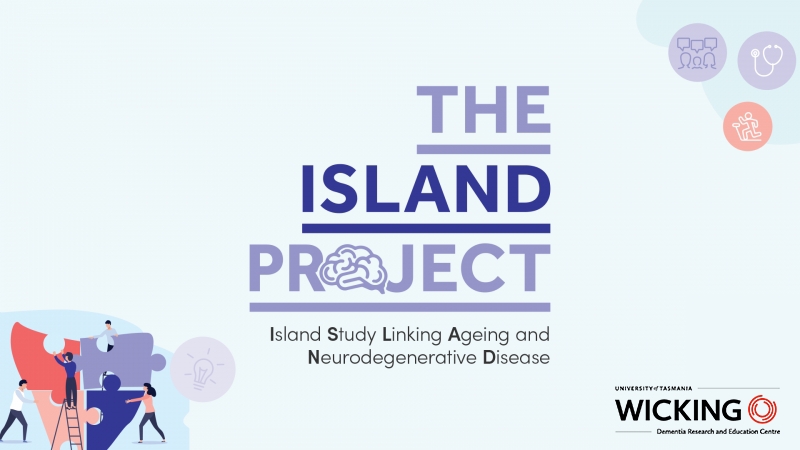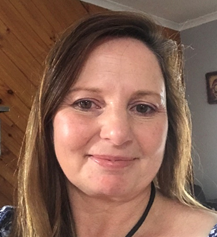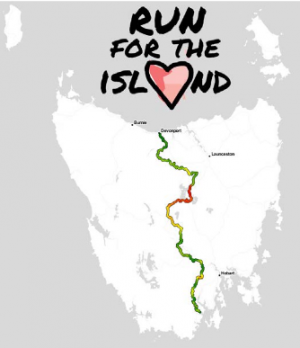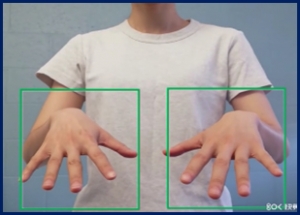| ISLAND Newsletter - December 2021 |
View in browser | Print |
 | | | 
Welcome to this edition of the ISLAND Project newsletter. My name is Christine Russell, I have the privilege of supporting the ISLAND Project team as they work tirelessly to educate Tasmanian people about their modifiable risks of dementia.
I have a diverse skill set which has been developed over several careers. I enjoyed many years as a nurse in Hobart hospitals, a large proportion of that time was spent working with people living with dementia. After having my beautiful children, I went back to study a Bachelor of Education at the University of Tasmania, followed by a Masters Degree, while I was teaching in schools around Hobart. Most recently I have combined both of my previous careers to undertake some casual teaching and marking of the Bachelor of Nursing units with the University of Tasmania. I also utilise my organisational skills working as a Practice Manager for a local Cardiology Practice and to assist the lovely people at the ISLAND Project.
Lately we have been focused on organising the support events for Run for the ISLAND which is planned for December 17th to December 22nd, 2021. I hope you will all come out to support the team if they are in your area, we are all excited to be getting the message about the modifiable risks of dementia out to the regional areas of Tasmania.
| | | 
Sleep and dementia risk
A good night’s sleep is one of those things that provides a wonderful feeling of rejuvenation, wellbeing, and energy. Unfortunately, for many people, a good night’s sleep is elusive. Sleep insufficiency can make us feel exhausted and lacking in energy, we can have poor concentration, attention span and memory, we may be uncoordinated in our movements, irritability may be exacerbated, and our emotions may not be stable. All these effects may cause us to feel unwell and to struggle with daily life, but is there a lasting or ongoing effect from sleep insufficiency?
Recent studies have highlighted that poor sleep quality, including excessively short sleep and changes in sleep habits, are associated with a higher risk of dementia, especially Alzheimer’s disease and Vascular Dementia. They note that sleep has a restorative function, especially for cognitive domains such as memory, attention, mood, and behaviour. It also has a protective function, such as assisting in the removal of metabolic waste from the fluid around cells in the brain. Any sleep imbalance could, therefore, potentially contribute to neurodegeneration and the exacerbation of neural cell damage and dysfunction, which may contribute to the cognitive changes observed in incidences of dementia.
Overall, it appears that the benefits of getting a good night’s sleep far outweigh the consequences of getting too little sleep. For some people too little sleep is a choice we make due to lifestyle or social expectations, for others sleep disturbances are due to health issues or the need to care for somebody else. If you are getting insufficient sleep, perhaps it is a good time to take action to alleviate the problem and take care of your brain health. If you need guidance, speak to your General Practitioner.
| | | 
RUN for the ISLAND webinar
Want to find out more about our fundraising initiative, RUN for the ISLAND and meet the team taking on the challenge of running the Tasmania Trail?
Join Eddy, James, Jess and Josh, ISLAND research fellow, Larissa and Wicking Dementia Centre Director, Professor James Vickers in this ZOOM webinar. The webinar will give you an opportunity to ask the team questions and find out how this initiative will support our research.
Monday, 13 December 11am to 12pm
|  | | | 
RUN for the ISLAND events
As well as tackling the 480km Tasmanian Trail, the RUN for the ISLAND team will be hosting local events along the way to promote dementia prevention and research. Come along and meet the RUN and ISLAND teams and support their efforts to raise funds for dementia research. - DEVONPORT - Devonport Library, Friday 17th December, 4:30pm - 5:30pm, Launch event, Devonport Senior Citizens Club 7pm - 8pm, AND Devonport Park Run, Saturday 18th December
- LATROBE - Hill Street Store, Saturday 18th December, 10am - 11am
- DELORAINE - Deloraine Newsagency, Sunday 19th December, 10am - 11am
- MIENA - Central Highlands Lodge, Sunday 19th December, 7pm - 8pm
- OUSE - Country Club, Monday 20th December, 7pm - 8pm
- NEW NORFOLK - Bowls Club, Tuesday 21st December, 7pm - 8pm AND New Norfolk Library, Wednesday 22nd December, 10am - 11am
- DOVER - Golf Club, Wednesday 22nd December, 7pm - 8pm
Read more
| | | 
TAS Test on the global stage
We presented our TAS Test research with an oral presentation at Alzheimer’s Association International Neurosciences Next Conference. The abstract describing the TAS Test preliminary results will be published in Alzheimer's & Dementia: The Journal of the Alzheimer's Association — the premier peer-reviewed journal of dementia science and treatment. This has been a great opportunity to spotlight the TAS Test research to the world’s neuroscience community and we have received really positive feedback. This research would not have been possible without so many ISLAND participants continuing to take part. From all the team, we would like to say a huge thank you! We would be so grateful if you will continue to do TAS Test each time we invite you so we can track changes over time too. Click here to watch the presentation and find out the early results of TAS Test.
| | | 
Free webinar: Food for thought: How does diet impact brain health?
Did you know that around 40% of cases of dementia can potentially be prevented? Your diet can have a major role in many dementia risk factors, such as diabetes, high blood pressure and obesity. Evidence suggests that dietary patterns like the Mediterranean diet provide a range of health benefits, including in relation to cognitive function. Come along to this session to hear about some of the research in this area and explore what dietary changes you might be able to make to reduce your risk of dementia. Presented by Dr Emma Lea and colleagues: Wednesday 8th December - 12pm-1pm (Zoom online seminar) Register here
| | ISLAND Project Partners | |
|  | |
The University of Tasmania received funding from the Australian Government. Views and conclusions expressed in this publication are those of its authors, and may not be the same as those held by the Department of Health.
|
|
Stay Connected:
|


|
islandproject.utas.edu.au
|
| |
|
|